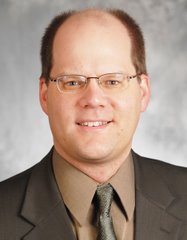End of Session Wrap-Up
The 2009 legislative session just ended and news reports say that a “deal” was not made on the budget. In fact, the Legislature did deliver a balanced budget to the Governor after five months of rigorous work.
During the last five months, all committees in the legislature worked to enact significant cuts to the state budget and hold the line on spending in major areas. We cut ethanol subsidies, agency administrative budgets and bureaucracy, reimbursement rates for certain health care providers, and many more items.
We also made significant reforms. We reduced mandates on schools and other local governments, reduced reporting requirements, and restructured health care payments. We also agreed with the Governor to delay $1.8 billion in payments to K-12 schools.
In addition, we made prudent use of federal money to maintain health care eligibility for more than 100,000 people, many of whom have recently been laid off, and to cap higher education tuition increases.
That left us with a $1 billion gap in a $6.4 billion deficit that could only be solved in one of four ways. The first option included the Governor’s proposal to borrow the money and pay off the bonds for 20 years plus $600 million in interest. Constituents overwhelming rejected this idea in my legislative survey, and Democrats and Republicans voted against this option on the House floor almost unanimously.
The second option was increased gambling revenue. We also voted on this idea and it did not pass. The Governor said he would not sign a bill that increased revenues from gambling.
The third option was a tax increase. We passed a bill that would raise the money from a higher income tax rate for joint filers making more than $250,000 a year, a surcharge on credit card companies that charge higher than 15% in interest rates, and increased taxes on alcohol. Our plan dedicated this funding to K-12 schools, nursing homes and similar facilities, and our hospitals. We felt that this was a pay-as-you-go approach as opposed to a borrow-and-spend approach. The Governor vetoed this bill.
The final option was more cuts. The Governor signed all of our finance bills, but vetoed our bill to raise revenue. To close the gap left by his veto, the Governor said he would make some line-item vetoes in those bills and then use his unallotment power to unilaterally make cuts starting on July 1. The first line-item veto he made was $380 million in General Assistance Medical Care. GAMC provides health coverage to 30,000 adults who make less than $7,800. Seventy percent of these patients have a serious mental illness and many of them—including veterans—are homeless. In public testimony, the Governor’s own Department of Human Services Commissioner Cal Ludeman said these people are the “poorest of the poor, and the sickest of the sick.” These are precisely the people—the least of these—for whom a government safety net is required.
In addition, our hospitals like Regions and HCMC are expected to make significant job layoffs and reductions in services because this funding makes up such a large part of their budgets. HCMC in Minneapolis could be cut up to $100 million and Regions could be cut up to $46 million. This will drive up health care premiums for those of us with private health coverage.
Readers of my columns and blog will know that I do not engage in a lot of partisan rhetoric and finger-pointing. But that line-item veto, and the subsequent party-line vote in the House that upheld the veto, were the coldest and fiscally counter-productive political actions I have ever witnessed.
The Governor’s unallotment is also likely to cut higher education significantly, and the University of Minnesota tells us that will likely increase tuition by about 15%. Circle Pines and Lexington residents will likely see increased property taxes due to his proposed cuts to local government aid and the rest of us will lose a lot from cuts to the market value homestead credit and the property tax refund program. Taxes hurt, but so do cuts.
There was a lot of good legislation that ran under the radar this session, due to the budget shortfall, including some of my own legislation. But that can wait for a future entry. Have a good summer, and I hope that you will share your thoughts with me in the months to come.

